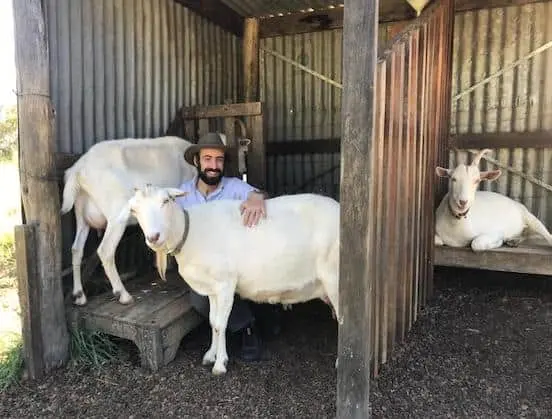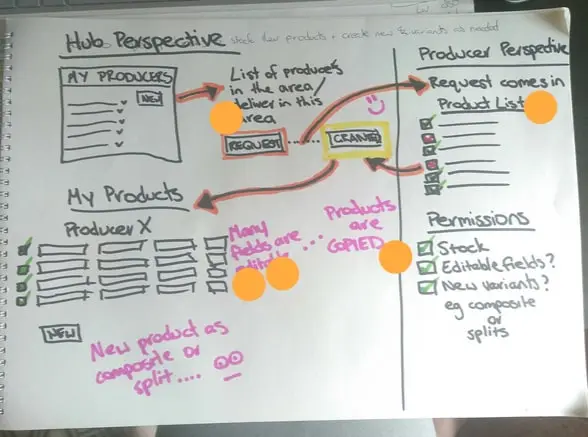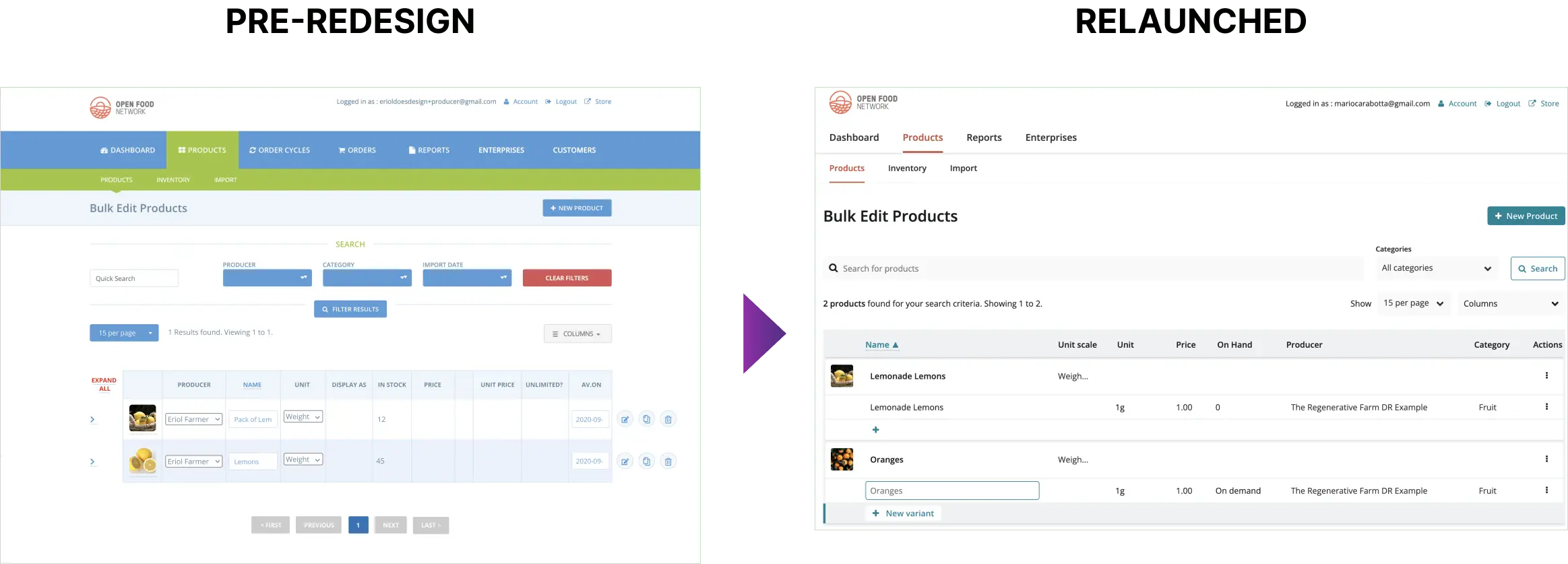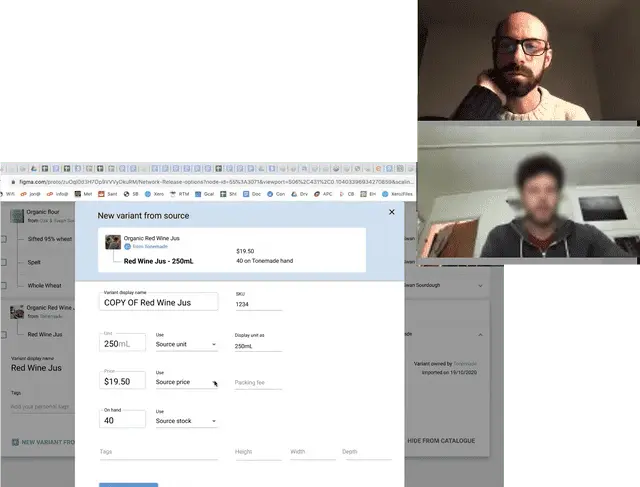New networks for food producers and distributors
Open Food Network enables new, ethical supply chains.
Food producers can sell online, wholesalers can manage buying groups and supply produce through networks of food hubs and shops.
Communities can bring together producers to create a virtual farmers’ market, building a resilient local food economy.
Although I'm a city person, after high school I have started to grow interest in the countryside and home-scale sustainable food production, from growing veggies to brewing my own beer.
I have volunteered in a few farms to explore the farmers' life, and I have learned very quickly that is a freaking hard job! What makes it even harder is the current food system, in which producers are often exploited by a distribution and consumption model that limits the sustainability of small-scale production.
When I was introduced to one of the founders of Open Food Network, I immediately decided that I wanted to contribute to their vision somehow.

How this project came about
When I started contributing, I got asked to work on "Network", a pretty nebulous term for what, in retrospective, I would describe as the generative market network vision of the organisation.
Open Food Network aims at enabling producers, local food hubs, organisations and individuals to generate new distribution models based on local connections, to..I'm going to say it..disrupt the food supply chain model.
Sounds pretty complicated, doesn't it? Besides the feeling of ambiguity that often comes with work involving early discovery, I felt a sense of true exploration of something that has never been done before, and as such it was hard to even give it a name. I started this project feeling quite uncertain, in a good way!
Remote ways of collaborating
Open Food Network is a fully remote organisation, with folks working and volunteering all around the world. Some people contribute to the global platform - the core software, while others focus on promoting and maintaining national instances of the software and supporting producers, food hubs and consumers locally. It's a pretty incredible community, that leverages Slack, Discourse and Github to share, discuss and contribute to this amazing vision.
Being my first real experience in a fully distributed, mostly async context, I needed to adjust my ways of working. As the informal project lead in a global context, I felt responsible to make sure that core team members were actively involved in the process, while also empowering the community to provide inputs.
With that in mind, I facilitated a series of remote workshops with the core team to establish a rapport and project agreements, share knowledge and ideate. Once we got deeper with concept designs, I started sharing asynchronously via prototypes, videos and threads in Slack and Discourse. I am pleased with this approach, as it led to genuine collaboration, and enabled the creation of documentation and artefacts that could be picked up by new contributors later on.

Where to intervene?
Tackling such a behemoth is not something that can be achieved overnight, even more so given that the platform is used by thousands of people and worked on by hundreds of volunteers. The discovery side of this piece of work has enabled folks to explore, share and discuss possible futures of the software and the connections it could enable, but it has also highlighted some of the gaps that need to be filled in order to achieve the vision.
After interviewing some producers and hubs managers, we have identified a problem in the inventory management, and the underlying data model, that needs to be addressed before taking the actual first steps to enable the market network in the ecosystem. With that in mind, we have narrowed the scope down to address that underlying issue, together with introducing a more modern UI with the intention to make the development of new components and functionality more scalable.
This decision has generated a more defined, but still big, piece of work.
I would be usually quite suspicious in redesigns, even more so in recommending one, but in this particular case we had a strong rationale and a clear hypotesis with measurable targets to hit.
One of the main long term goals was also to sunset a whole section of the interface and consolidate it with this redesigned version, which brought the added benefit of simplifying the software.

What I am grateful for
Every project, in its own way, helps becoming a more skilled professional, but collaborating with the folks at Open Food Network has given me much more than just getting better with some tools or activities.
The non-hierarchical way that underpins how this community collaborates was such a breath of fresh air compared to the uninspiring organisational models that I have been used to. It comes with its own challenges, but as it's demonstrated by what's been achieved so far, it can work.
Having the opportunity to talk with folks using the platform, farmers and volunteers in food hubs has been wonderful. Everyone was incredibly supportive, and hearing their background and stories has been an inspiration feeding my personal passions.
Contributing to an impact-led organisation has enabled me to start to understand what it means to work for something that I feel passionate about. I have experienced how passion and willingness to work as a group can actually enable radical change to happen. This is for sure a lesson that will be with me forever.
